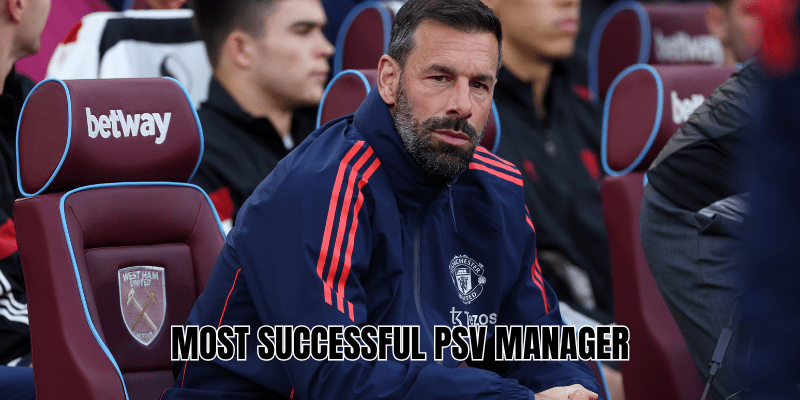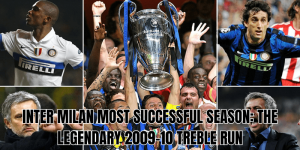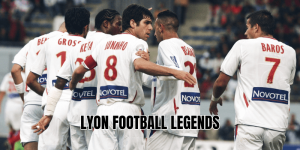From the moment you mention most successful PSV manager, a name leaps to mind for every Dutch football fan: Guus Hiddink. But is the claim justified? Today, ShanyaKick will journey through the history, records, and legacy to explain why Hiddink stands head and shoulders above all rivals in the PSV managerial pantheon.
Why “most successful” matters so much at PSV
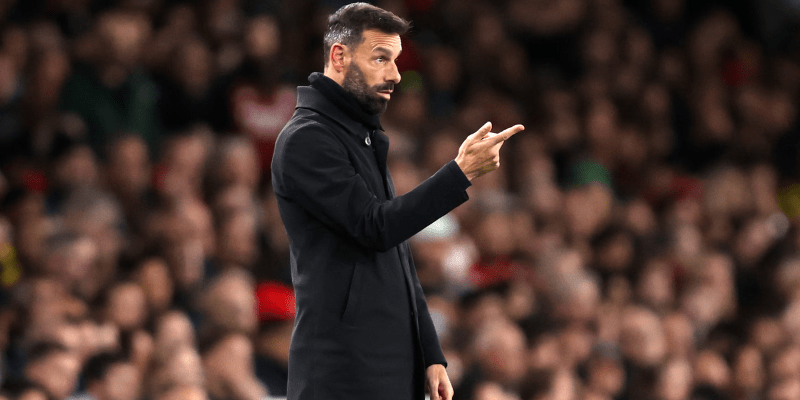
PSV Eindhoven is one of the “big three” of Dutch football, alongside Ajax and Feyenoord. Expectations are always sky-high. To earn legendary status, a manager must not only win trophies, but also show consistency, domestic dominance, European prowess, and lasting impact. Fans and historians often consider:
- Total number of trophies (league, domestic cups, supercups, European)
- Longevity and multiple successful stints
- Turning points
- Influence on club identity, youth promotion, playing style
When you combine these metrics, one name consistently emerges above the rest.
Guus Hiddink’s PSV reigns: two distinct eras
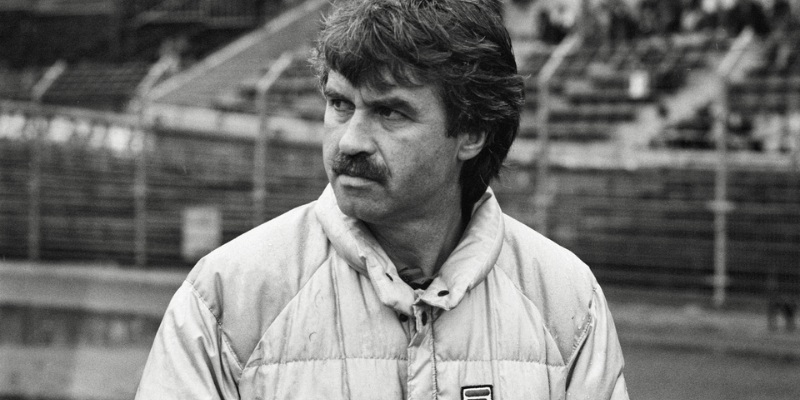
Hiddink’s legacy at PSV is built on two major stints as head coach—first. Those years provided the platform—not only for silverware but for making history.
First spell: The Rise (1987–1990)
- He was initially assistant coach before taking over as manager in March 1987.
- In that 1986-87 season, with just ten matches to go, he turned PSV’s campaign around to clinch the league.
- The 1987–88 season became legendary: PSV won the Eredivisie, KNVB Cup, and European Cup, accomplishing a historic treble.
- In those first three seasons, under Hiddink, PSV collected three league titles and three KNVB Cups.
That early era established Hiddink as a rising coaching star—not only domestically, but on the European stage.
Second spell: Sustained dominance (2002–2006)
- After coaching elsewhere and in national roles, Hiddink returned to PSV in 2002.
- During this period, he won **three more Eredivisie2-03, 2004-05, 2005-06) and one more KNVB Cup (2004-05).
- Under his direction, PSV reached the Champions League semi-finals in 2004–05, a historic benchmark for the club in the modern era.
- Throughout both tenures, his tally rose to six Eredivisie titles, four KNVB Cups, plus the European Cup.
In many eyes, this dual legacy—not just winning, but sustaining success across eras—is the defining mark of a club legend.
Comparative challengers: Who else comes close?
To affirm Hiddink’s status, it’s worth measuring his records against other great PSV coaches.
Bobby Robson, Erik van der Meijden, and Dick Advocaat
These names may resonate, but none matched Hiddink’s combination of domestic and European success at PSV.
Piet de Visser
Piet de Visser is more known as a legendary scout and advisor. While influential in PSV’s recruitment and long-term vision, his coaching time was not comparable in terms of silverware.
Louis van Gaal
Although van Gaal’s name looms large in Dutch football, he is not the primary figure in PSV’s managerial history. His successes mostly came at Ajax and Barcelona.
Rinus Michels, Johan Cruyff, and others
These are Dutch coaching greats—Michels pioneered total football, Cruyff’s philosophy influenced generations. Yet their direct impact at PSV as managers is limited or non-dominant. Hiddink remains the only PSV coach to combine domestic dominance with a European trophy.
When you weigh total trophies, European legacy, and longevity at PSV, Guus Hiddink comfortably outpaces the rest.
Records and statistics that seal his name
Here’s a snapshot of achievements and data that reinforce the case for Hiddink as most successful PSV manager:
| Metric | Hiddink | Closest Rivals / Notes |
| Eredivisie titles won at PSV | 6 | None else at PSV reach this number |
| KNVB Cup wins at PSV | 4 | No other PSV coach has the same |
| European Cup / Champions League | 1 (1988 European Cup) | Unique among PSV coaches |
| Champions League deep run (modern era) | Semi-final in 2005 | Benchmark in PSV’s modern history |
| Total club trophies at PSV | 10+ (6 league + 4 cup + 1 European + supercups) | Unmatched in PSV record books |
| Influence and legacy | Youth, club culture, attracting talent (e.g. under him the club discovered or nurtured stars) | Elevated PSV’s stature domestically and abroad |
Beyond mere titles, Hiddink’s legacy is visible in how PSV is perceived: a club that competes not just in the Netherlands, but in Europe. His two eras bookend eras of ambition, identity, and trophy expectation.
Why many still debate — but few realistically challenge
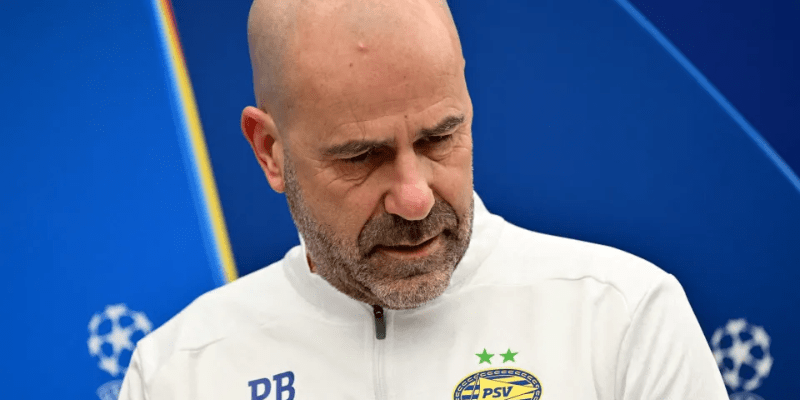
A few caveats and subtleties keep debate alive:
- Some fans argue that eras differ: winning six league titles in a more competitive modern era might carry extra weight.
- Others emphasize consistency across decades—could a future coach surpass Hiddink if they win over a longer continuous stretch?
- European success is rare and hard — some coaches might argue a deep Champions League run today is harder than winning the old European Cup.
Yet even accounting for evolving era strength, competition, and finances, none of PSV’s managers combine Hiddink’s full trophy list, influence, and European legacy.
Lessons from Hiddink’s managerial style at PSV
What made Hiddink so effective? Here are some key traits and approaches:
- Tactical flexibility with stability — he could adjust formations and styles, but maintained a core identity.
- Man management and unity — he often speaks of involving his staff and building trust, not ruling.
- Scouting and youth integration — through connections like Piet de Visser, he was able to spot talent that fit PSV’s system.
- Defensive solidity underpinning attack — while known for attacking Dutch football, his teams were well organized at the back.
- Historic timing and legacy-building — that treble in 1988 remains symbolic; the later European run in 2005 reminded fans Europe mattered to PSV.
These intangibles strengthen his statistical case: he changed the club’s expectations, not just filled the trophy cabinet.
Some contenders to watch in PSV history
Though none eclipse Hiddink, it’s fair to nod to a few worth remembering:
- Philips-era coaches: Coaches working under heavy expectation in the modern era.
- Champions League-era specialists: Those who guided PSV through European campaigns with moderate success.
- Young, emerging names: Future coaches may yet challenge his record—if they stay long, win consistently, and take PSV deep in Europe.
But as of today, the bar Hiddink set remains high and largely unapproachable.
Conclusion
Most successful PSV manager isn’t a mere title—it’s a mantle earned through trophies, longevity, European achievements, and lasting influence. Guus Hiddink checks every box. With six domestic titles, four cups, a European Cup, and a Champions League semi-final, his record remains unmatched. Beyond the numbers, his style, influence, and consistency built a lasting legacy in Eindhoven.
If you’re a PSV fan or simply a student of great coaches, Hiddink’s journey teaches you what it means to define a club era. At ShanyaKick, we’re always exploring legends like this—so dive dee, or explore how modern and future managers measure up to Hiddink’s standard.

